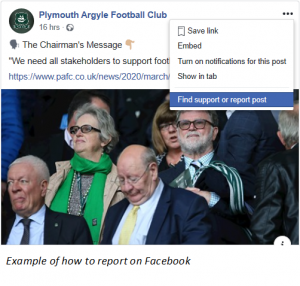Fake news: It was the phrase of last year! Fake news is content being spread across the internet that has provided inaccurate accounts on world events as well as click bait stories that have likely spread panic and gossip around the world.
The CIGI-Ipsos Global Survey reported that in 2019, 86% of international users have fallen for fake news with 35% of stating they believed that most of the fake news came from the United States.
The Covid-19 Pandemic presents us with uncertain times and social media can, has, and will continue to play a part in the information being distributed in our communities.
So, it’s more important than ever to ensure that the news and social content you’re sharing, and reading is factual and not fake.
Fake news or false information is content created to misinform the reader, sway the reader’s political views, or cause confusion.
According to researchers at MIT, fake news can spread around 10 times faster and has a much higher reach than genuine news stories.
There are several ways that fake news is communicated to the public: propaganda messaging, biased news stories, click bait or misleading headlines are just a few ways that readers have been ‘engaged’ and then motivated to share the content to their followers.
How do you know what news on your feed is real, and what news is fake?
Firstly, its recommended that any news you get should be from trusted sources, if you want to share news with your followers, friends or local community (through community Facebook groups) you can do that directly from the website of your chosen news outlet.
If you are sharing news from a social media source, always check for a blue verification tick (found next to their account name) on the account and make sure you’ve read the full article before you do so.

When you see an article shared to your feed, you can check if it’s genuine by asking these questions:
If your checks show you that the article or content is fake news, please be responsible and report it to the platform. It’s also worthwhile to leave a friendly comment to the person who shared it, letting them know why you’ve reported it.
Every social media platform has the ability for users to report content, whether it is content that is spamming your feed, something you don’t like / aren’t interested in, or for reporting Fake News.
Knowing how to report Fake News about the Covid-19 pandemic, and other topics, is highly important in preventing unnecessary panic and the spread of incorrect guidance and updates.
To report a Fake News article simply click on the 3 dots found on the top right-hand side of a Facebook / Instagram / Pinterest post, and the down arrow on the right-hand side of a Twitter post.
Each platform will allow you to categorise the reason for your report, examples on how to report posts are below.

We’re sure that most people want their news feeds or timelines to be filled with content they find interesting or engaging and to prioritise updates from their friends, families or local communities.
If you can contribute to the reduction of panic within your community, social media is a good place to start.
It’s important, especially given the uncertainty now, that legitimate messaging from the Government or NHS isn’t overshadowed by Fake News.
Take 2 extra seconds to report articles that you believe to be Fake or provide helpful information to friends who may have shared, unknowingly, Fake News to their community.
FullFact.org is the Independent fact checking charity for the UK and is a great source for anyone wanting to double check any information they’re finding online.
If you’re not sure whether an article you’re reading is correct or real, you can use FullFact.org to check for you.
With information on Coronavirus being in high demand, searching the subject will provide factchecked articles on that chose subject.
In order to make the best decisions for your business and families, it is so important to ensure that information you’re getting is correct and comes directly from a trusted source.
You can get accurate information and updated news about the Covid-19 Pandemic from trusted sources. We recommend following these accounts:
NHS: Facebook, Twitter, Instagram
Gov.UK: Facebook, Twitter
FullFact.org: Facebook, Twitter, Instagram
World Health Organisation: Facebook, Twitter, Instagram
Department of Health and Social Care: Facebook, Twitter
BBC: Facebook, Twitter, Instagram
Thank you for taking the time to read this blog. We’re passionate about a safer and more enjoyable internet, so please help us to make a difference.